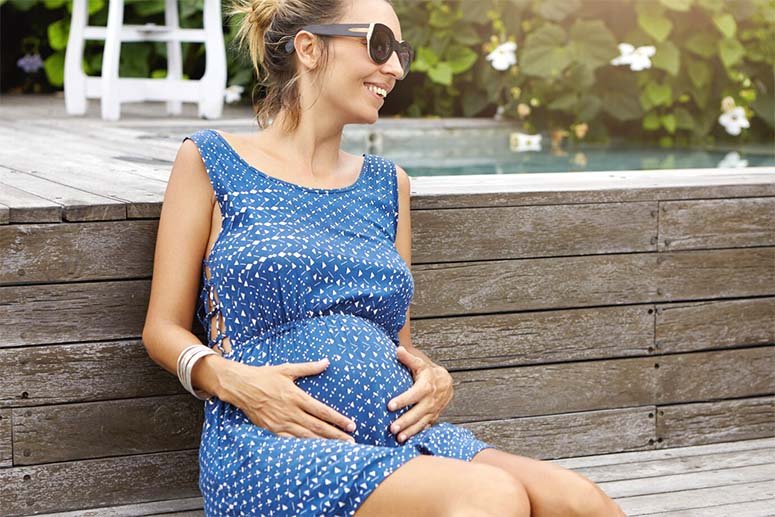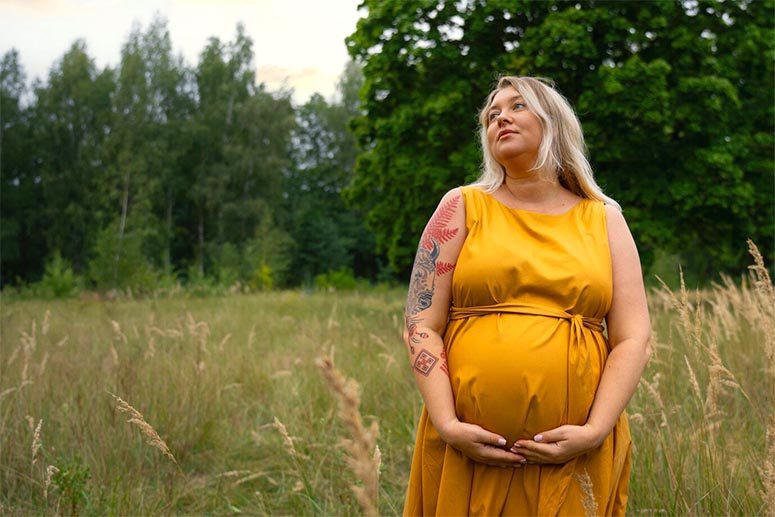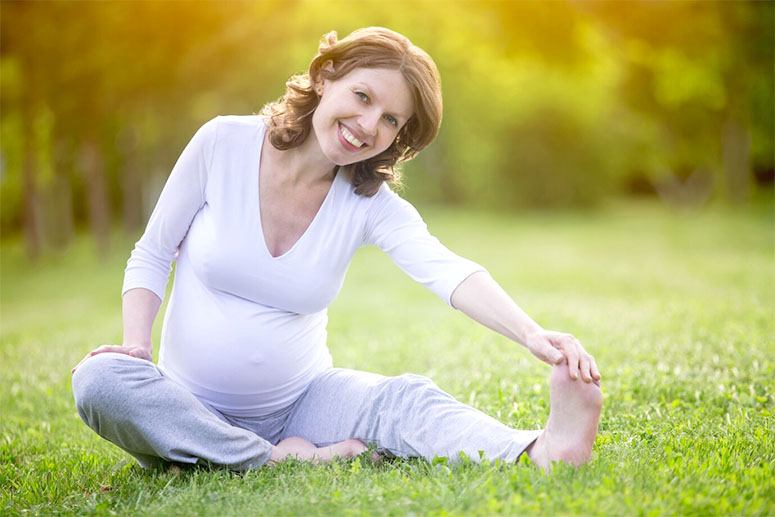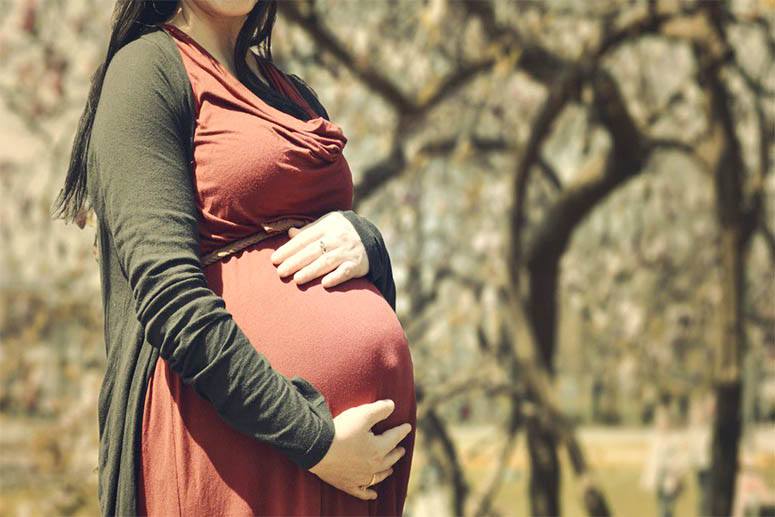Contents
Pregnancy is frequently perceived as a journey associated with youth – however, an increasing number of women are contemplating motherhood later in life.
As societal norms continue to evolve and more women place a higher priority on careers, education, and personal aspirations, inquiries regarding fertility have become increasingly significant.
Many are asking, ‘What are the odds of getting pregnant after 40, 45, and 50?’
This article examines these odds, exploring the likelihood of conception, the natural and assisted reproductive options available, and the associated risks at these stages of life, offering valuable insights for individuals navigating this distinctive path.
What is the average age of pregnancy?
The average age of pregnancy has been progressively increasing over the years, reflecting broader societal changes, advancements in reproductive health, and individual family planning choices.
Many women are now opting to conceive later in life due to various factors, including career aspirations, educational pursuits, and personal preferences.
These trends are significant in understanding the implications of maternal age on fertility.
The increasing prevalence of late motherhood has altered pregnancy statistics and heightened awareness regarding the likelihood of conception and associated health risks.
As women approach their 30s and 40s, it is crucial to acknowledge the effects of age-related fertility decline and the importance of making informed decisions concerning reproductive health.
What are the chances of getting pregnant after 40?
As women enter their 40s, the likelihood of conception declines significantly due to a variety of age-related factors that impact fertility.
The chances of becoming pregnant after the age of 40 can be influenced by hormonal changes, the quality of ova, and overall reproductive health.
This decline in fertility has led to heightened awareness regarding fertility treatments and options available for women considering motherhood later in life.
It is essential for women contemplating late motherhood to understand these factors, particularly as they navigate the potential pregnancy risks and complications associated with advanced maternal age.
Fertility specialists underscore the importance of comprehensive health assessments and lifestyle modifications to improve the chances of conception during this stage of life.
What are the factors affecting fertility after 40?

Several factors can impact fertility after the age of 40, including lifestyle choices, hormonal influences, and the overall health of both partners.
As women age, the quality of their eggs typically declines, while men may also experience changes in sperm health, complicating the chances of conception.
Pre-existing health conditions can further affect reproductive capabilities, highlighting the necessity of comprehensive health assessments and prenatal care when attempting to conceive at this age.
Lifestyle factors such as nutrition and emotional health play a significant role in enhancing fertility and managing the challenges associated with late motherhood.
Proper nutrition is essential – a balanced diet rich in antioxidants, healthy fats, and vitamins supports reproductive health.
Regular physical activity is equally important, as it helps regulate hormones, reduces stress, and maintains a healthy weight, all of which can positively influence fertility.
Furthermore, mental well-being should not be overlooked – managing stress through mindfulness practices or therapy can create a more conducive environment for conception.
Regular check-ups enable women to monitor their reproductive health and make informed decisions.
Additionally, considering fertility preservation techniques, such as egg freezing, offers options for individuals wishing to delay parenthood without compromising their future chances of conception.
Can you get pregnant naturally after 40?
While the likelihood of natural conception after the age of 40 decreases significantly, it remains possible for some women to achieve pregnancy without the use of assisted reproductive technology.
Many women attain success through natural conception by meticulously monitoring their ovulation cycles and implementing necessary lifestyle modifications to enhance their reproductive health.
Factors such as maintaining a balanced diet, managing stress, and understanding the conception window can improve the likelihood of pregnancy, even though maternal age introduces specific challenges.
A comprehensive awareness of the fertility landscape and making informed choices can give the power to older mothers on their path to conception.
Engaging in regular physical activity, whether through yoga, walking, or weight training, can also play a critical role in enhancing fertility.
Staying adequately hydrated and ensuring sufficient sleep can further support hormonal balance, which is essential for ovulation. Tracking ovulation can assist in identifying the most favorable days for conception.
Utilizing fertility awareness methods or applications can streamline this process, facilitating the strategic planning of intimate moments around the peak fertility window.
By adopting these lifestyle changes and prioritizing overall well-being, older mothers can cultivate a more optimistic and confident outlook regarding their ability to conceive naturally.
What are the risks of pregnancy after 40?
Pregnancy after the age of 40 presents several potential risks and complications that women should consider prior to conception.
As maternal age increases, the likelihood of experiencing pregnancy-related complications, such as gestational diabetes, hypertension, and chromosomal abnormalities, also increases.
This underscores the necessity of comprehensive prenatal care and genetic testing, which can assist in evaluating potential risks to fetal development and identifying any pre-existing health conditions that may impact the pregnancy.
It is essential for women contemplating late motherhood to seek counsel from healthcare providers in order to navigate these risks and make informed reproductive decisions.
Plus the heightened risk of miscarriage and chromosomal disorders such as Down syndrome, older pregnant women may encounter an increased likelihood of labor complications, necessitating closer monitoring throughout their pregnancy journey.
Conditions such as placenta previa and preterm birth may become more prevalent, further emphasizing the importance of thorough prenatal care.
Genetic testing not only facilitates the understanding of potential genetic anomalies but also enhances the decision-making process regarding the pregnancy.
By developing a tailored healthcare plan, women can significantly reduce these risks, ensuring that both their health and that of their baby remain a priority during this transformative period.
What are the chances of getting pregnant after 45?

The likelihood of achieving pregnancy after the age of 45 is significantly reduced compared to younger age groups, primarily due to the natural decline in fertility and the quality of eggs associated with aging.
Women in this demographic frequently encounter substantial challenges related to reproductive health, resulting in a heightened reliance on assisted reproductive technology (ART) for conception.
By comprehending the probabilities of pregnancy at the age of 50 and the available fertility treatments, women can make informed decisions regarding their reproductive health.
Despite these challenges, numerous women have successfully conceived later in life, highlighting the importance of tailored fertility awareness and support.
Can you get pregnant naturally after 45?
While natural conception after the age of 45 is increasingly rare, there are documented cases where women have successfully conceived through diligent ovulation tracking and lifestyle modifications aimed at improving fertility.
The decline in fertility at this age necessitates a focused approach to conception, which may involve understanding one’s ovulation cycle and implementing healthy lifestyle choices that promote reproductive health.
Although assisted reproductive treatments are often considered, it is important to acknowledge that natural conception, while challenging, remains a possibility for some women attempting to conceive later in life.
By developing a comprehensive understanding of their individual ovulation patterns, women can effectively identify their most fertile days, thereby significantly enhancing their chances of conception.
Fertility specialists recommend employing methods such as basal body temperature monitoring and ovulation predictor kits to facilitate this process.
Lifestyle changes are of paramount importance – adopting a balanced diet rich in antioxidants, engaging in regular physical activity, and utilizing stress management techniques can create a more favorable environment for pregnancy.
It is also critical to avoid harmful substances, including tobacco and excessive caffeine.
Additionally, women should prioritize regular check-ups to ensure optimal reproductive health and engage in discussions with healthcare providers regarding their specific concerns for personalized guidance.
What are the risks of pregnancy after 45?
Pregnancy after the age of 45 presents a variety of risks and health complications that necessitate careful consideration and monitoring.
For example, the likelihood of chromosomal abnormalities, such as Down syndrome, increases significantly, thereby making genetic testing and counseling essential elements of prenatal care.
Additionally, older mothers may face elevated rates of miscarriage and premature birth, which can result in serious health implications for the newborn.
Consequently, continuous health assessments throughout the pregnancy are crucial for effectively managing these risks.
Comprehensive prenatal care not only supports the physical health of the mother but also offers emotional reassurance, assisting women in navigating the complexities associated with pregnancy at an advanced age.
Ultimately, remaining informed and proactive is essential in striving for a healthy outcome for both the mother and the child.
What are the chances of getting pregnant after 50?
The likelihood of achieving pregnancy after the age of 50 is markedly low, as natural fertility tends to decline significantly by this stage of life.
Nonetheless, advancements in assisted reproductive technology (ART) have created opportunities for women who aspire to pursue motherhood later in life, despite the challenges associated with advanced age.
Many women are now considering reproductive options such as egg donation and surrogacy, which present viable alternatives to natural conception.
It is crucial for individuals contemplating pregnancy after 50 to understand these options, as they navigate the complexities of fertility and associated health risks.
Can you get pregnant naturally after 50?
Achieving natural conception after the age of 50 is highly improbable due to a significant decline in fertility and egg quality – however, it is not entirely impossible for a limited number of women.
Those who aspire to pursue this path must take a proactive approach to ovulation tracking and may need to adopt lifestyle factors that enhance overall reproductive health.
For many, assisted reproductive technology represents a more viable option for conception at this stage of life, considering the challenges associated with advanced maternal age.
While the likelihood of natural conception is low, several factors can influence the chances of success, including the maintenance of a balanced diet, regular physical activity, and effective stress management.
These lifestyle choices are essential not only for enhancing reproductive health but also for supporting overall well-being.
For individuals considering assisted reproductive technology, such as in vitro fertilization (IVF), this approach can provide a more structured method for addressing the challenges posed by aging.
Ultimately, comprehending the limitations associated with age-related fertility and making informed health choices can give the power to women to navigate their reproductive journeys with greater clarity and purpose.
What are the risks of pregnancy after 50?
Pregnancy after the age of 50 presents significant health risks and complications, necessitating comprehensive prenatal care and monitoring.
Women in this demographic may face an increased likelihood of conditions such as gestational diabetes and chromosomal abnormalities, thereby highlighting the importance of genetic testing and health assessments.
A thorough understanding of these risks and challenges is essential for women considering pregnancy later in life, as it facilitates informed reproductive choices and improved management of both maternal and fetal health.
As women advance in age, their bodies may respond differently to the demands of pregnancy, increasing the likelihood of complications such as hypertension and preterm birth.
Therefore, regular prenatal check-ups are critical for closely monitoring the health of both the mother and the infant.
Genetic testing is a crucial tool in identifying potential risks at an early stage, allowing healthcare providers to develop personalized care plans.
By engaging in open discussions with healthcare professionals, women can more effectively navigate the complexities of this significant decision, ensuring they are well-prepared for the journey ahead.
What are the options for getting pregnant after 40, 45, and 50?
For women contemplating pregnancy after the age of 40, 45, or 50, a variety of reproductive options exist that can improve their chances of conception and contribute to a healthy pregnancy.
Understanding what are the odds of getting pregnant after 40, 45, and 50 can guide women in making informed decisions about their reproductive journey.
Assisted reproductive technology, including in vitro fertilization (IVF), presents a viable avenue for many, particularly for those encountering age-related fertility challenges.
Furthermore, alternatives such as egg donation and surrogacy offer additional pathways for women aspiring to become mothers, highlighting the diverse reproductive choices available in contemporary society.
A thorough understanding of these options enables women to navigate their individual fertility journeys with assurance.
1. In vitro fertilization (IVF)
In Vitro Fertilization (IVF) represents one of the most prevalent assisted reproductive technologies utilized by women seeking to conceive, particularly those over the age of 40.
This procedure entails the stimulation of the ovaries to produce multiple eggs, which are subsequently retrieved and fertilized in a laboratory setting before being implanted into the uterus.
Understanding what are the odds of getting pregnant after 40, 45, and 50 with IVF can significantly enhance decision-making.
IVF has the potential to significantly enhance the likelihood of pregnancy, especially for women experiencing age-related declines in fertility, as it affords greater control over both egg quality and the timing of implantation.
A comprehensive understanding of the process and its associated success rates is essential for women contemplating this option.
The IVF process initiates with hormone stimulation, where a specific combination of medications is employed to encourage the ovaries to produce several eggs, as opposed to the single egg that typically matures each month.
Once the follicles are adequately developed, a minimally invasive procedure is performed to retrieve the eggs.
These eggs are then combined with sperm within a laboratory environment to facilitate fertilization. After a few days, the resulting embryos are evaluated for quality prior to transferring one or more into the uterus.
Although success rates can vary, it is generally observed that younger women tend to experience higher probabilities of conception compared to those in their late 30s and 40s, underscoring the impact of age on fertility.
It is important to acknowledge that many individuals may encounter challenges, including emotional strain and physical discomfort throughout the IVF process, thereby necessitating robust support systems.
Access to counseling services and support groups can prove invaluable for those navigating the emotional and physical complexities associated with IVF.
2. Egg donation
Egg donation has emerged as a widely accepted option for women who wish to conceive later in life, particularly in light of age-related declines in fertility.
This process involves the utilization of donor eggs, which can significantly improve the likelihood of a successful pregnancy due to the superior quality often associated with younger eggs.
Women pursuing this fertility treatment typically collaborate closely with fertility specialists to gain a comprehensive understanding of the process, including the selection of a donor and the implications associated with utilizing donor eggs.
The success rates for pregnancies achieved through egg donation are generally promising, rendering it a viable option for women of advanced maternal age.
The journey of egg donation encompasses emotional dimensions that are frequently overlooked.
The selection of an egg donor generally involves a thorough screening process, including genetic testing and psychological evaluations, to ensure that the needs of both the donor and the recipient are adequately aligned.
Many women facing infertility confront not only the medical challenges but also the emotional complexities that arise from using another individual’s genetic material.
This decision can evoke profound emotions for both the mother and the child, especially as the relationship between donor and recipient may influence future conversations, thereby shaping a child’s understanding of their origins.
Understanding these nuanced aspects is essential for anyone contemplating egg donation, as it represents not merely a medical procedure but also a significant personal journey.
3. Surrogacy

Surrogacy has emerged as a significant reproductive option for women who are unable to carry a pregnancy due to health risks or advanced maternal age.
This process involves a surrogate carrying the pregnancy for the intended parents, thereby enabling them to experience parenthood despite challenges related to fertility or health.
It is essential for families considering this option to understand the legal considerations and the emotional support available throughout the surrogacy journey. Surrogacy can offer hope and fulfillment for those navigating the complexities of reproductive health.
For many intended parents, surrogacy not only serves as a means to expand their family but also represents a deeply personal journey characterized by anticipation and emotional investment.
There are two primary types of surrogacy: traditional surrogacy, in which the surrogate is genetically related to the child, and gestational surrogacy, wherein the surrogate carries an embryo created through in vitro fertilization, resulting in no genetic ties to the baby.
Each pathway presents unique legal implications concerning parental rights and responsibilities, making it imperative to seek careful legal guidance to ensure the protection of all parties involved.
Emotional highs and lows are common throughout this process, and establishing robust support networks, including counselors and community groups, can significantly enhance the experience for both surrogates and intended parents.
Such networks foster connection and understanding throughout the surrogacy journey.
4. Adoption
Adoption represents a significant reproductive choice for women considering motherhood later in life, offering an alternative pathway to parenting in the context of fertility challenges.
Many women over the age of 40 choose adoption, demonstrating their intention to establish families while mitigating the risks associated with late pregnancies.
The adoption process is subject to considerable variability based on legal and emotional factors – therefore, it is imperative for prospective parents to comprehend the necessary steps and the support networks available throughout their journey.
Adoption not only transforms the lives of adoptive parents but also profoundly enriches the lives of children awaiting a nurturing home.
Through both domestic and international adoption avenues, individuals can investigate various pathways to parenthood, each characterized by distinct requirements and emotional dynamics.
A thorough understanding of these methods is essential, as they present different challenges and rewards.
Throughout this journey, the emotional landscape can be complex, with potential parents experiencing a wide range of emotions, from excitement to anxiety, as they navigate assessments, home studies, and the finalization of the adoption process.
Establishing a robust support network, which may encompass family, friends, and adoption professionals, is critical for effectively managing these emotions.
Resources such as adoption seminars, support groups, and counseling services can provide invaluable insights and encouragement, assisting families in finding strength as they build lasting bonds that significantly transform their lives.
Further down the page, you’ll find our FAQ addressing the likelihood of conceiving at ages 40, 45, and 50.
Uncover the fascinating universe of probabilities and unusual events. Deepen your knowledge with our articles at WhatAreTheOddsOf.NET.



